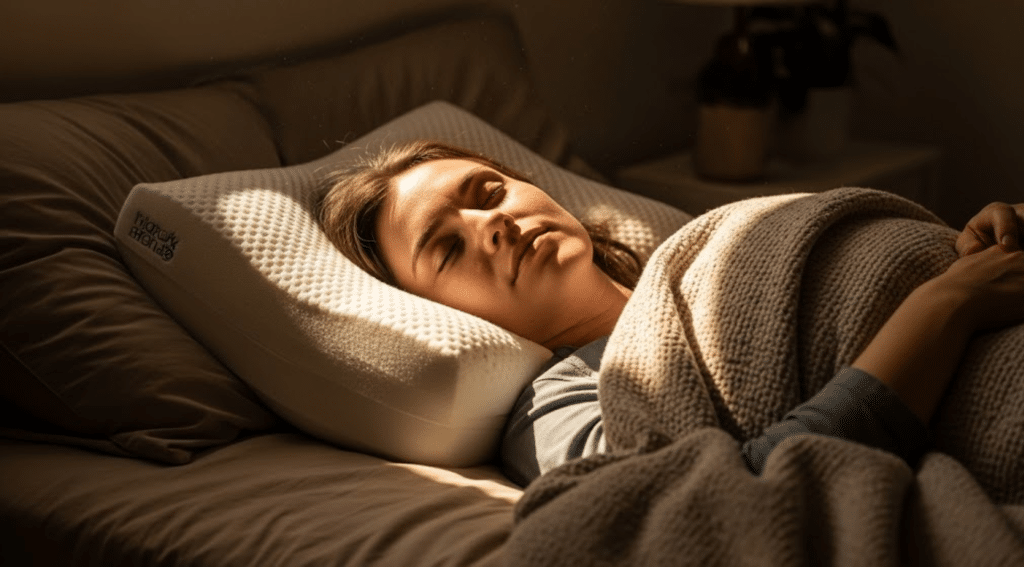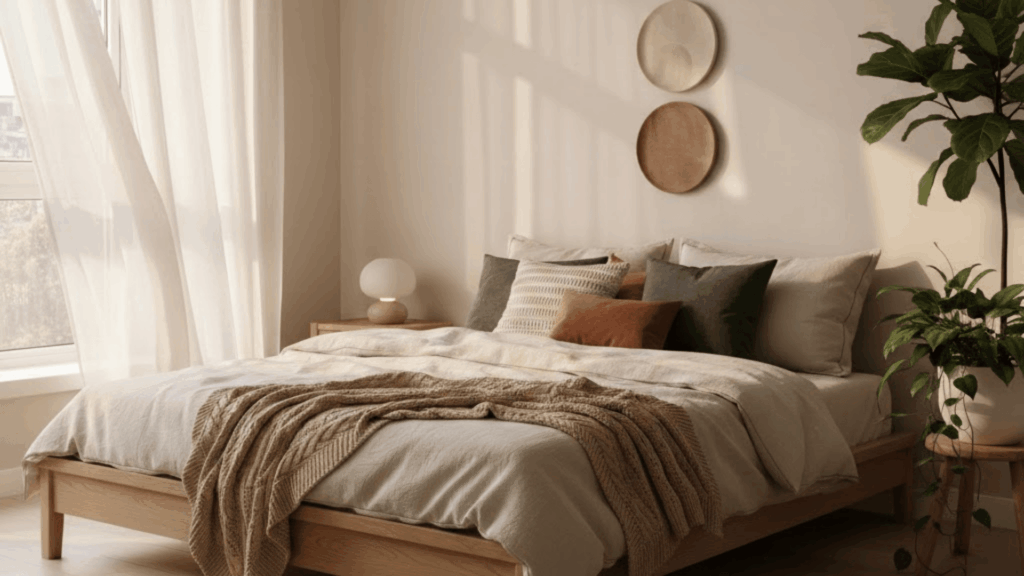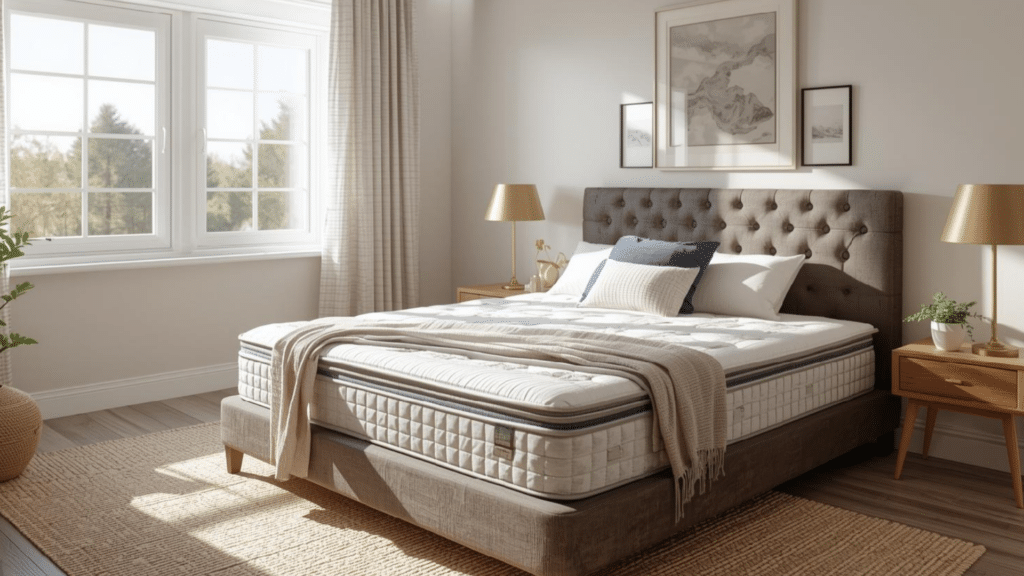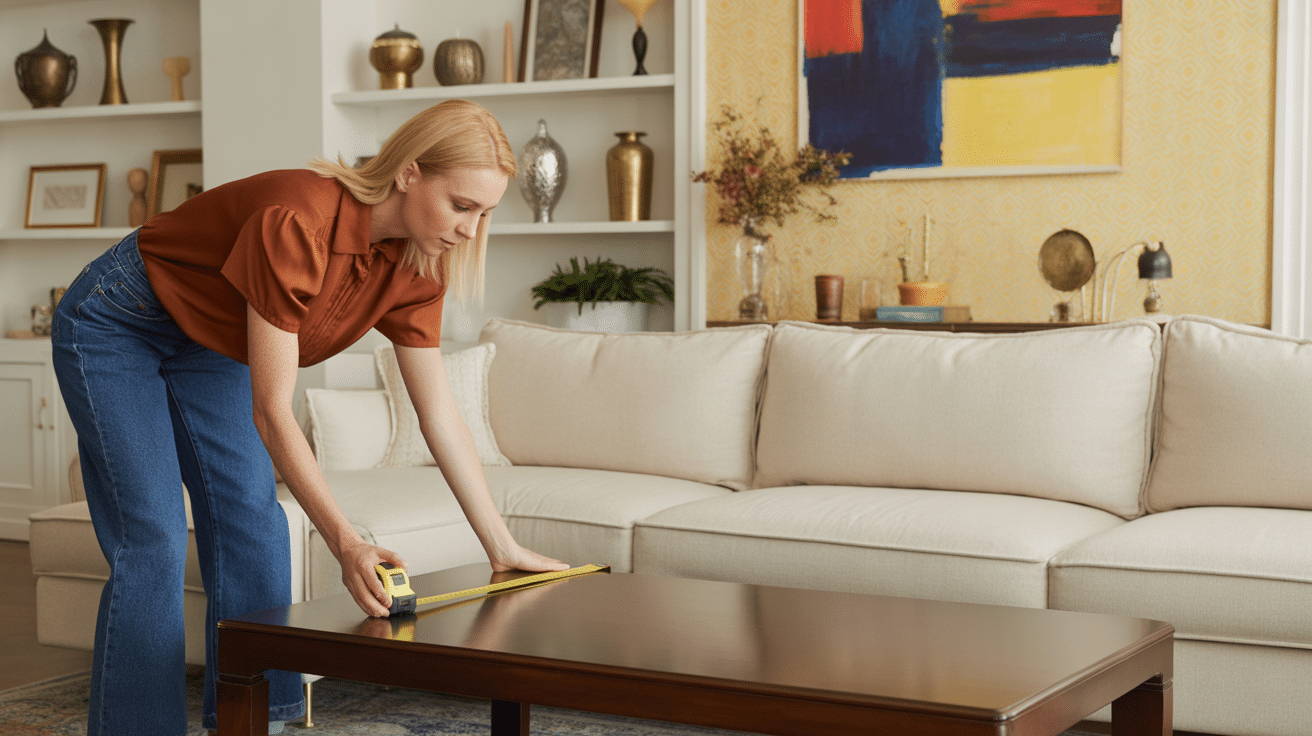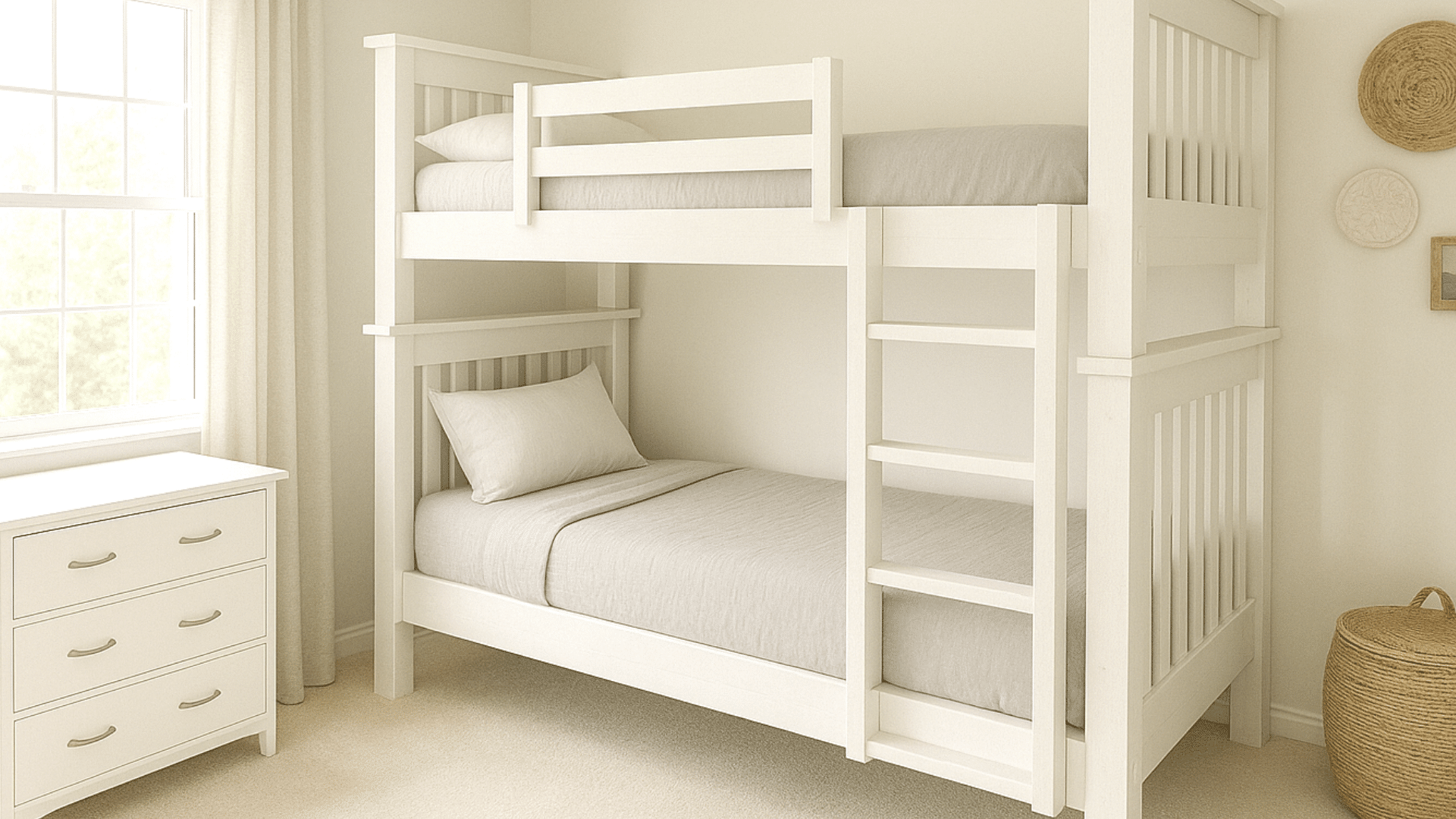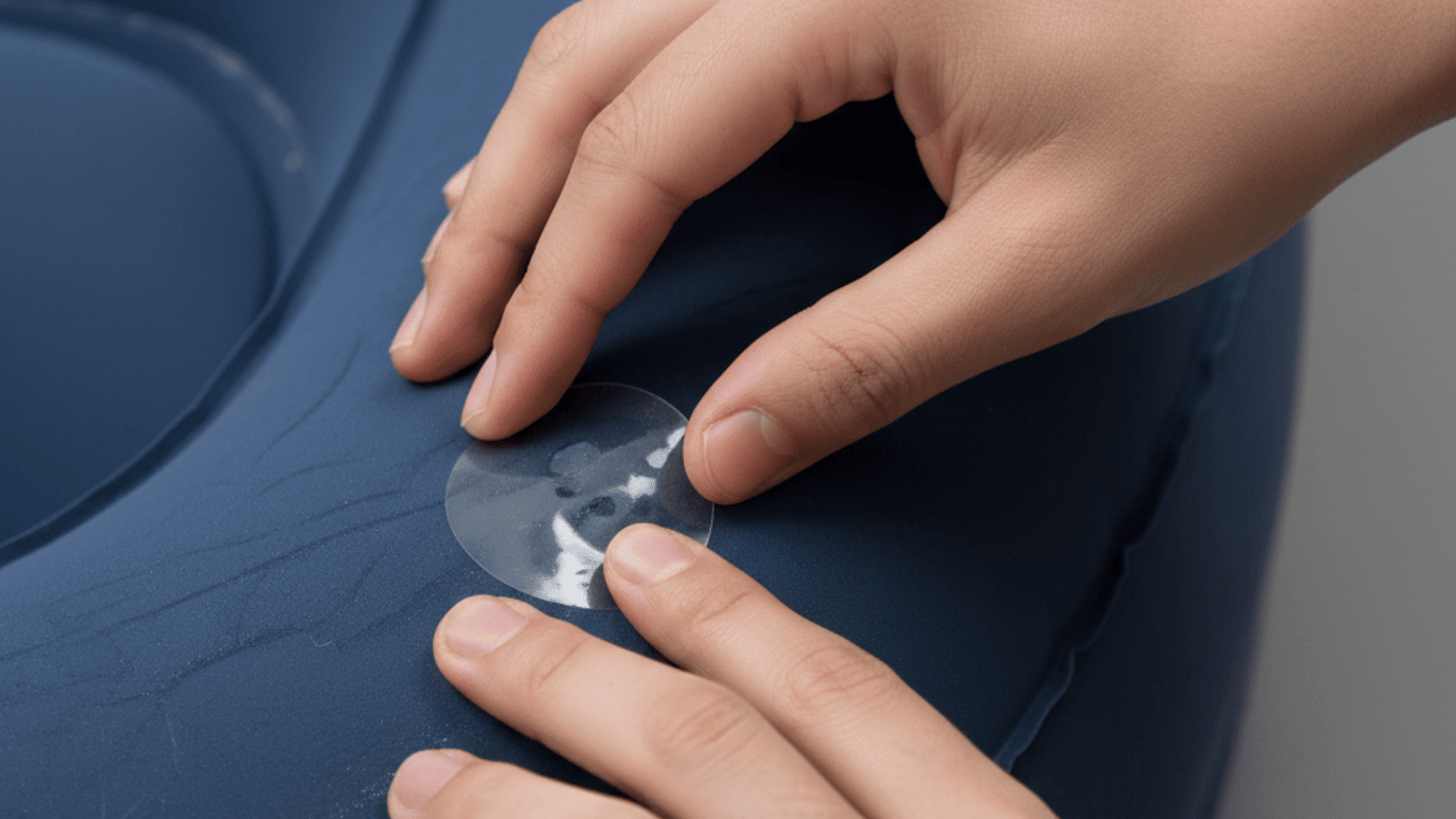Waking up with a blocked or muffled ear can be frustrating. I’ve had it happen, and it’s not a great way to start the day. If you’ve ever wondered, “Why does my ear get clogged when I sleep on my side?” I’ve got your back.
Side sleeping can create pressure, shift earwax, or even trap fluid, leaving your ear feeling full or uncomfortable by morning.
I’ll walk you through the most common causes, the symptoms worth paying attention to, and some simple fixes you can try at home. You’ll also find out what to avoid so you don’t accidentally make the problem worse.
Let’s figure out what’s really going on and how to keep it from happening again.
Why Does My Ear Get Clogged when I Sleep on My Side
Sleeping on your side can put pressure on the outer ear. This pressure may shift earwax or trap fluid in the ear canal, leading to a clogged or muffled feeling. In some cases, the ear canal narrows slightly during sleep, which can block sound and cause temporary discomfort.
Allergies, sinus issues, or mild colds can also cause fluid to build up, which might move when you lie down. Your sleep position and pillow type can make this worse by pressing unevenly on the ear.
Understanding these small changes can help explain why the ear feels blocked. Knowing the cause is the first step in finding ways to reduce or avoid that feeling in the future.
Reasons Why Your Ear Gets Clogged at Night
It’s common to wake up with a clogged ear after sleeping on your side, and it usually comes down to how pressure, fluid, or other factors affect your ear while you rest. Here are some possible reasons:
1. Pressure on the Ear Canal
When you sleep on your side, your ear gets pressed between your head and the pillow. This pressure can push the outer part of your ear inward. That pressure may gently close off the ear canal or move wax deeper inside.
The result? A blocked or muffled feeling when you wake up.
Earwax helps protect your ear, but too much of it can be a problem. If you lie on one side for hours, wax can shift and press against your eardrum.
This makes your hearing feel dull or blocked. Using cotton swabs can push wax deeper, so cleaning your ears the right way matters too.
2. Eustachian Tube Dysfunction (ETD)
Your Eustachian tubes connect the middle part of your ear to your throat. They help control air pressure and drain fluid. When they don’t work well, your ear can feel full or clogged.
Lying on your side may keep the tube from draining properly, especially if your head stays in one position too long.
Common signs of ETD:
- Fullness in one or both ears
- Muffled sounds
- Popping or clicking when you swallow
- Feeling off-balance or dizzy
These signs may get worse after sleeping on one side, during allergy season, or when you have a cold.
3. Fluid and Sinus Buildup
When you have allergies or a stuffy nose, fluid and mucus can build up. That fluid might travel near your ears and press on the tubes and canals. While you sleep, gravity may pull the fluid to one side, making one ear feel more blocked than the other.
Dry air or not drinking enough water can make the mucus thicker. In allergy seasons like spring or fall, more people deal with ear pressure and clogged sensations.
Keeping the air in your room moist and staying hydrated can help thin the mucus and make drainage easier during sleep.
Signs Your Ear is Clogged
A clogged ear from side sleeping usually goes away on its own. But sometimes, the feeling sticks around or gets worse. This could mean something else is going on.
Here are common symptoms to pay attention to:
- Feeling of fullness or pressure in the ear
- Muffled or reduced hearing
- Crackling, popping, or clicking sounds
- Ear pain or tenderness
- Ringing in the ear (tinnitus)
- Trouble keeping balance or feeling dizzy
- Fluid coming from the ear
If you notice one or more of these symptoms, keep track of how long they last and if they get worse. Persistent or severe signs may mean it’s time to see a doctor for proper treatment.
How to Unclog Your Ear at Home
If your ear feels clogged when you wake up, there are easy things you can try at home. These small changes can help stop that blocked feeling and keep your ears comfortable.
1. Change Your Sleeping Position
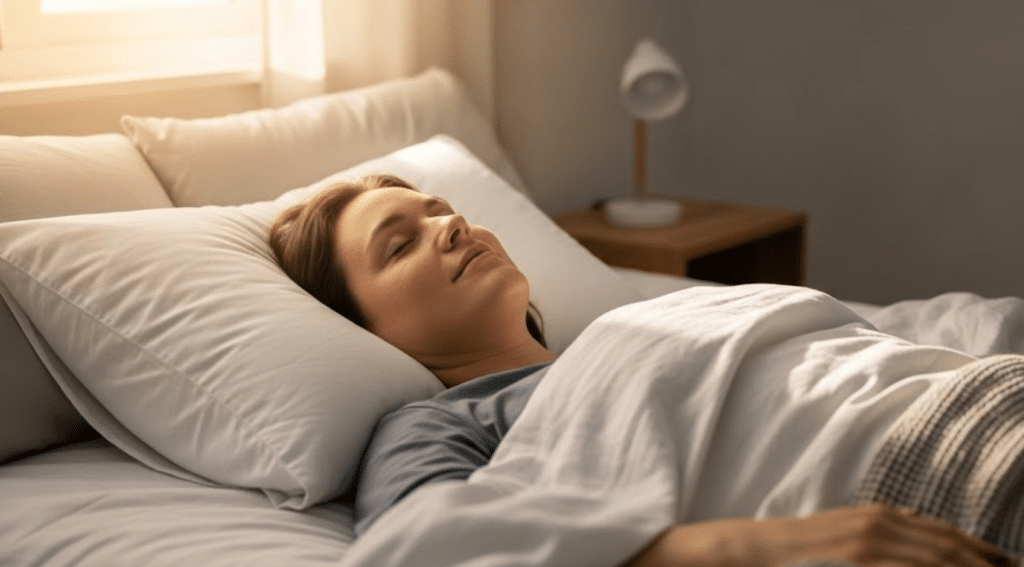
Sleeping on your back is usually best for your ears. It keeps pressure off both ears and helps with fluid drainage. Sleeping on your stomach or the same side every night can press on the ear and trap wax or fluid.
2. Use a Better Pillow
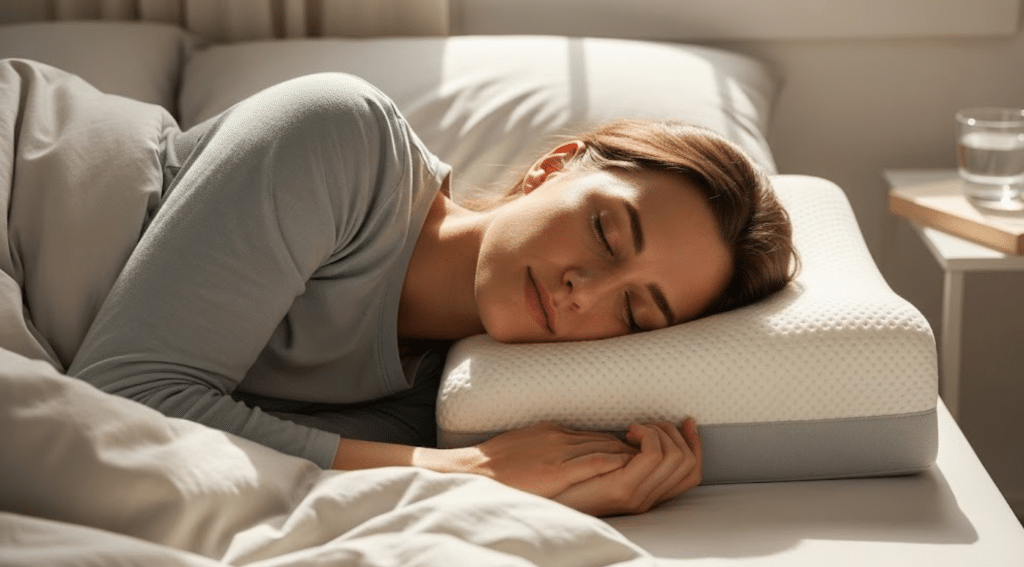
The wrong pillow can press too hard on your ear. A pillow that’s too flat or too thick can bend your neck or squash your ear canal. Use a medium-height pillow that supports your head without pressing too much on your ear.
Memory foam pillows often work well because they shape to your head and reduce pressure. Some pillows even have a small hole or dip for your ear to rest in without getting squeezed.
3. Hydrate and Humidify
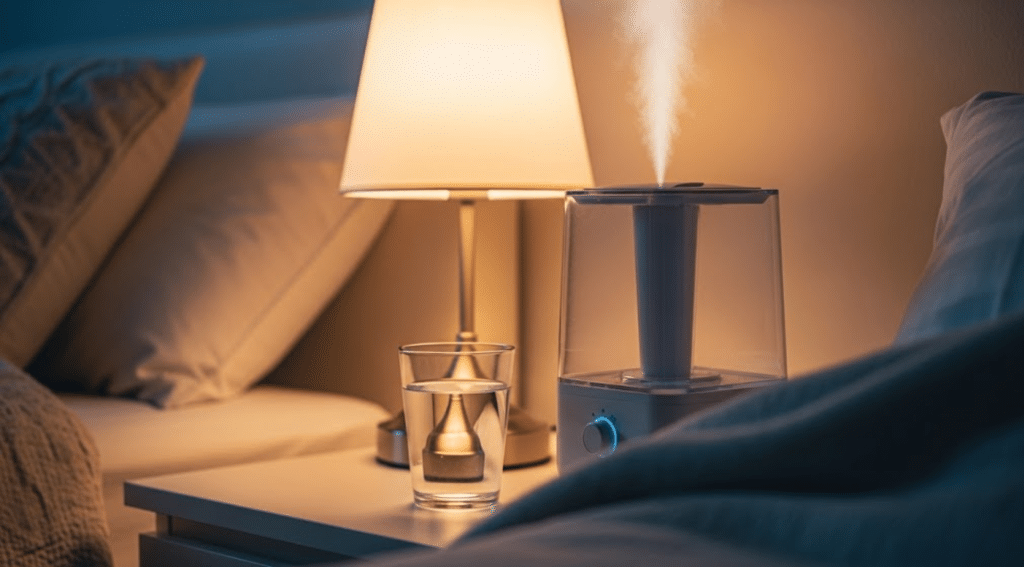
Dry air and not drinking enough water can make mucus thicker and harder to drain. This can lead to pressure in your ears, especially when sleeping.
Drink water throughout the day and use a humidifier in your bedroom at night. A little moisture in the air can help keep your nose and ears clear.
Breathing easier at night often means fewer problems with clogged ears in the morning.
4. Gentle Ear Clearing Methods
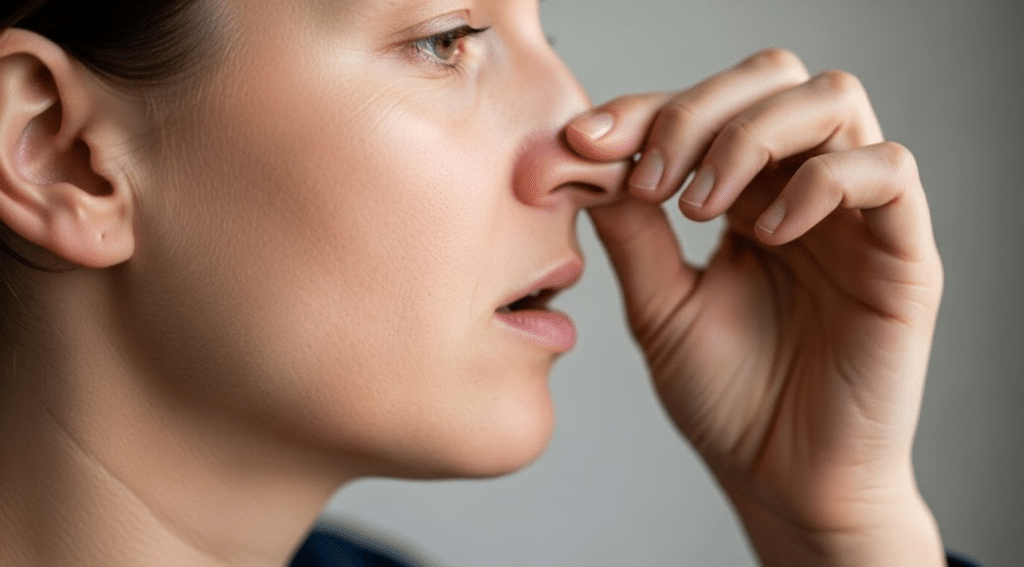
Sometimes, the Eustachian tubes just need help opening. Yawning or swallowing a few times can help pop your ears and ease the pressure.
You can also try gently blowing through your nose while holding it closed and keeping your mouth shut, just be careful not to blow too hard.
Avoid sticking anything into your ear. Cotton swabs and other tools can push wax in deeper.
What Not to Do if Your Ear Feels Clogged
If your ear feels clogged, it’s tempting to try quick fixes, but some actions can actually make the problem worse. Steer clear of these common mistakes to protect your ears and avoid further trouble:
- Keep cotton swabs and other objects out of your ear canal.
- Skip pouring unknown liquids or oils into your ear.
- Pay attention to ongoing pain or swelling instead of brushing it off.
- Avoid forcing your ears to “pop,” as it can cause damage.
- Stay away from ear candles; they can burn skin or create blockages.
- Dry your ears thoroughly after swimming or showering to prevent trapped water.
- See a doctor promptly if symptoms linger beyond a couple of days.
By avoiding these mistakes, you give your ears the best chance to heal and stay healthy.
Conclusion
Now you know the main reasons your ear can feel blocked in the morning and how to keep it from happening. If you’ve been asking yourself, “Why does my ear get clogged when I sleep on my side?” You can use these tips to reduce pressure, improve drainage, and protect your ears.
I’d start by looking at your sleep position, pillow choice, and daily habits to see where a few small changes could help. I’ve found that even simple adjustments can make mornings more comfortable and keep your hearing in better shape over time.
If you want more practical advice to improve your sleep and overall health, read my other blogs; you’ll find easy, real-life solutions that actually work.


